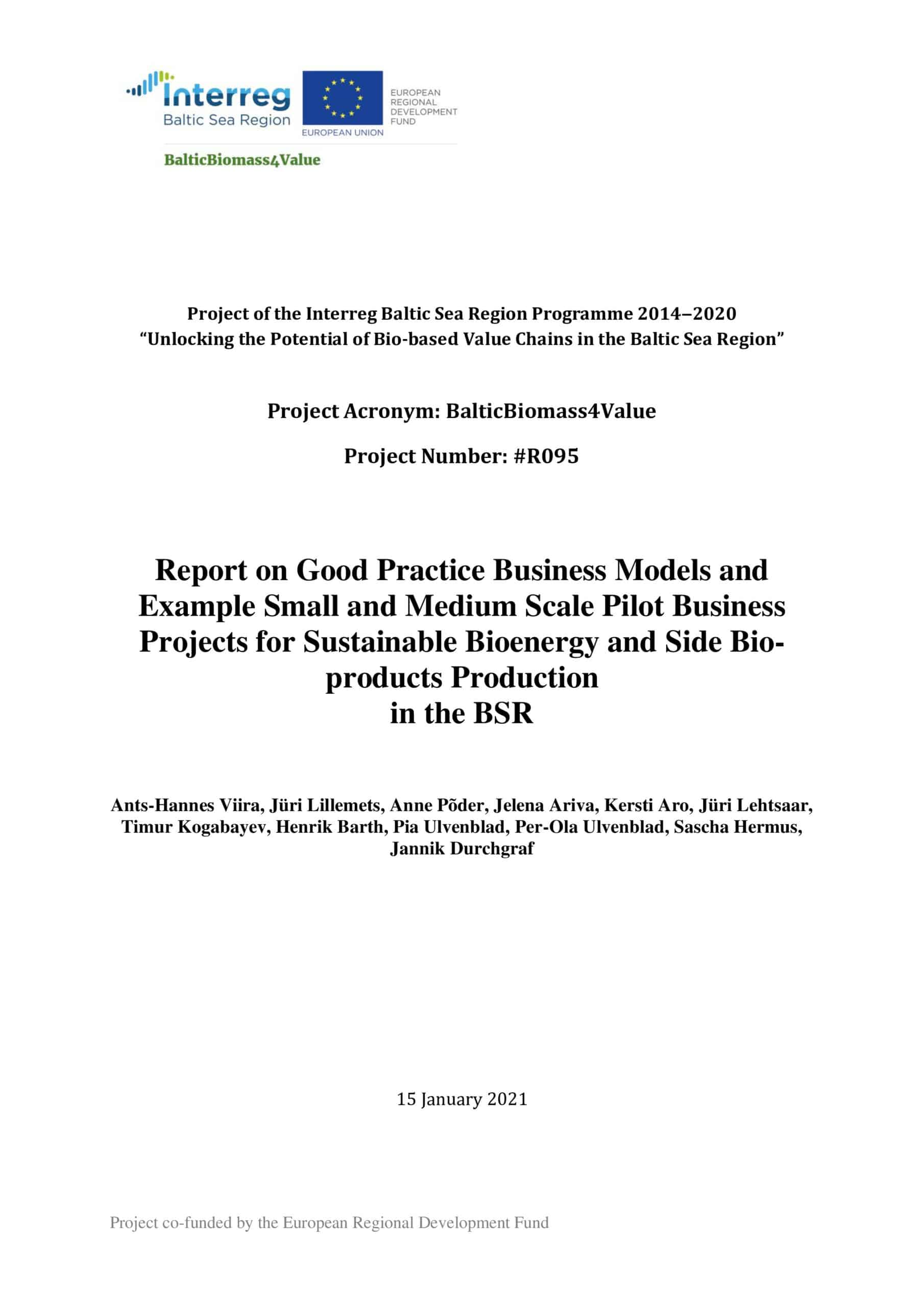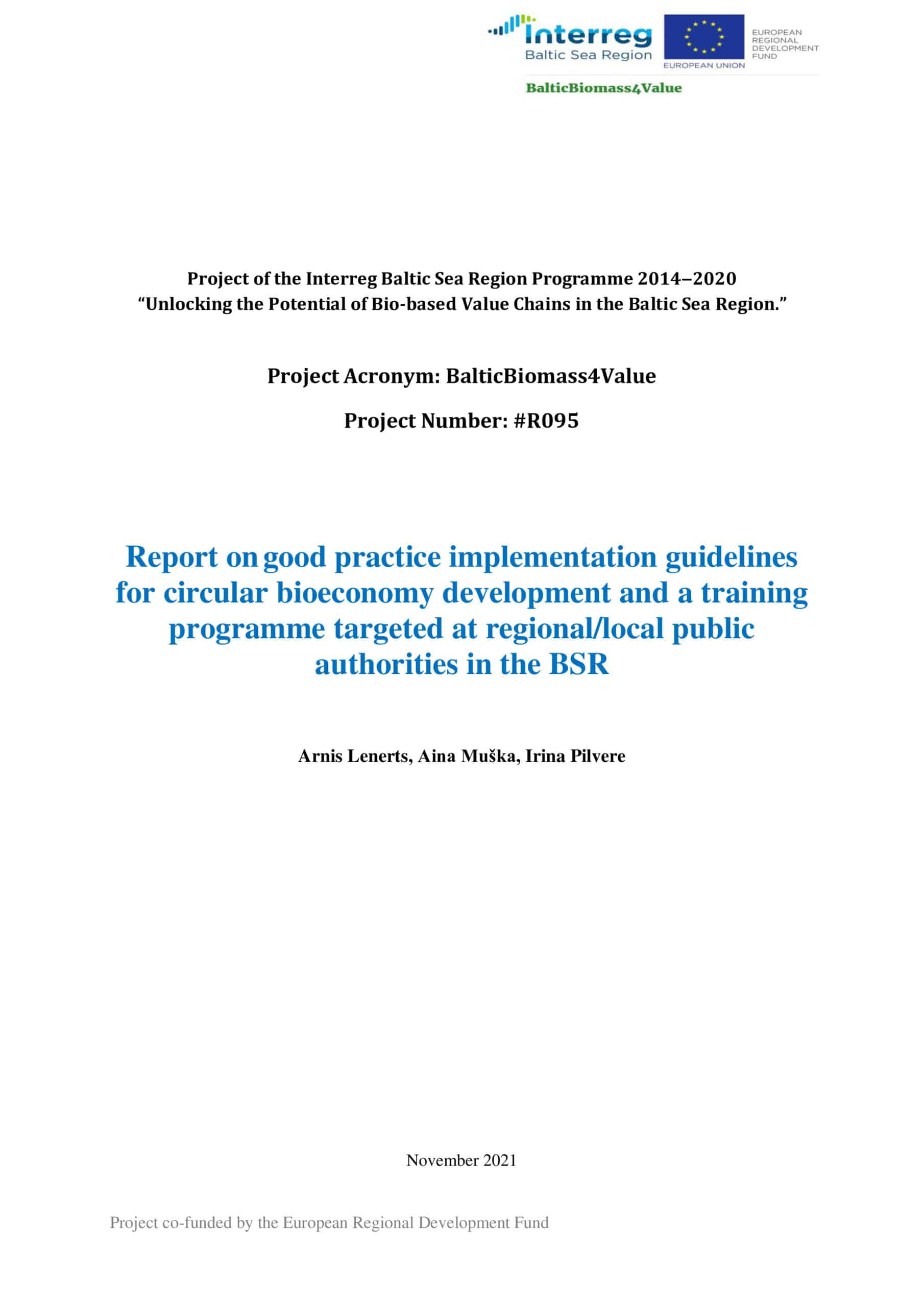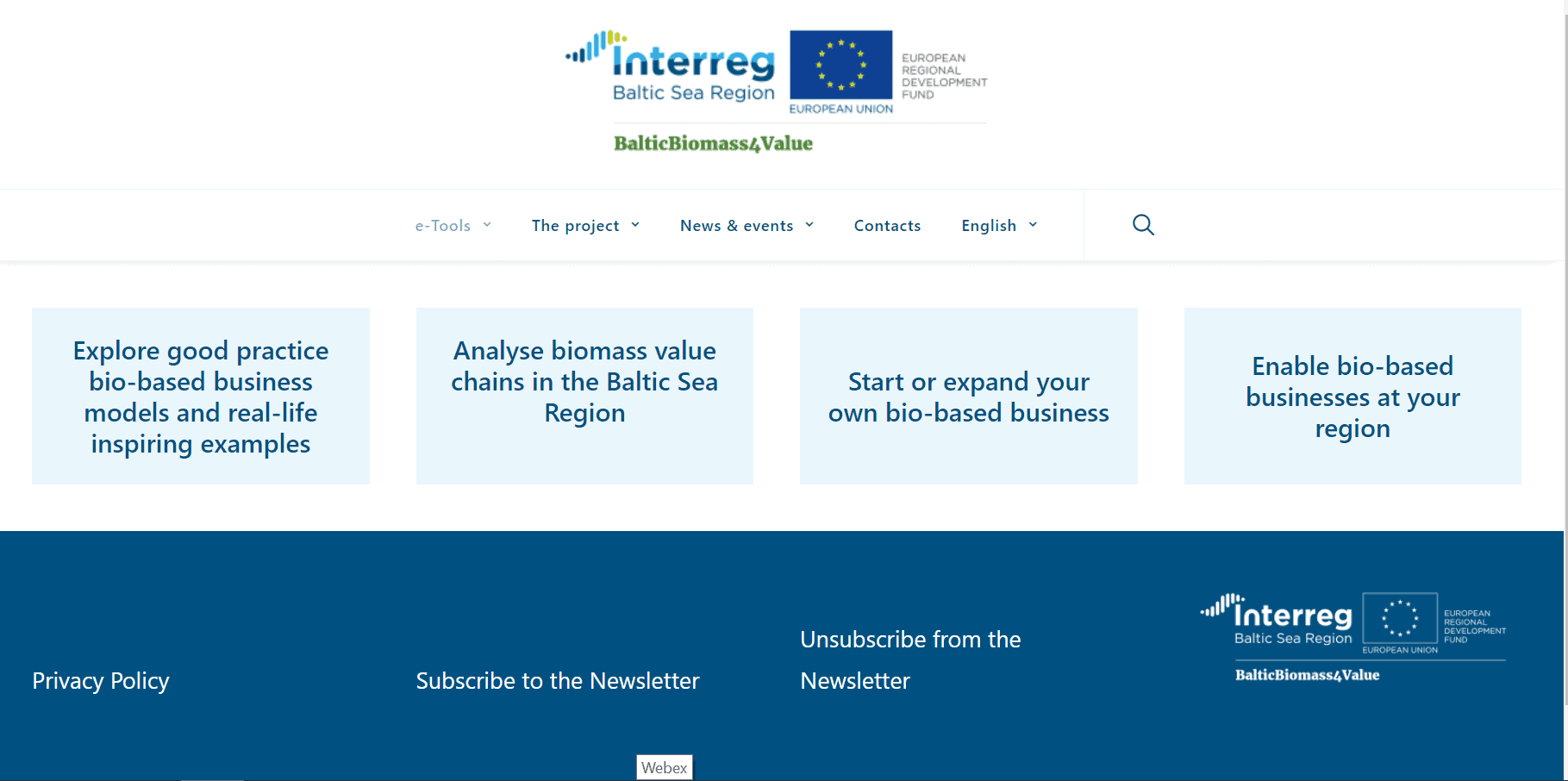BalticBiomass4Value
Biomass as a resource
Biomass for energy could be economically viable. Environmental questions, related to biodiversity and soil fertility, needed to be considered. The project BalticBiomass4Value worked with public and private actors within the Baltic Sea region to produce bioenergy in a more environmentally sustainable and economically viable way.
New knowledge and technology transfer services
Public authorities needed training and guidelines on how to improve the regional and local support systems for circular bioeconomy implementation. Small and medium-sized enterprises were in need of new models for producing bioenergy and integrated side bio-products in the Baltic Sea region.
Budgets
in numbers
-
2.79MillionTotal
-
1.86MillionErdf
-
0.09MillionEni + Russia
-
0.19MillionNorway
Achievements
Viability of different bioenergy products and value chains
The project explored the market outlook and future viability of different bioenergy products and value chains in the BSR energy system. The partners pointed out that the use of biomass in the energy sector was increasing due to the reduced use of fossil fuels. Targeted incentives were required to ensure economic sustainability for the increased use of biomass in the energy sector. Increased costs for the emission of carbon from fossil fuels would imply an increased use of biomass, especially in district heating, which represented a low-hanging fruit for reduced greenhouse gas emissions. Biofuels for transport would continue to be based on agricultural products in the next decade, but the establishment of second-generation biofuel plants was likely to gradually influence the biofuel market. Biomass could be used for various purposes and in many bioenergy technologies, i.e. direct combustion, biofuels or biogas production. Thus, the partners considered that the high level of development of bioenergy technologies and national bioenergy resources justified the recommendation to propose a strategy for the development of bioenergy and to share the best technologies and the best practices in order to increase the contribution of bioenergy in the BSR countries.
Business models for sustainable bioenergy and side biomass products production
The partners identified good practice business models for sustainable bioenergy and side biomass products production. The business model types were formed from the producers: larger specialised heat and electricity, service providers mostly using woody biomass, wood and plant-based pellet producers and users, biogas producers combining manure, agricultural residues, plant biomass, circular agricultural producers with bioenergy production as a side-stream for primary production; plant, and aquatic biomass users utilizing biowaste for energy production, and municipal sewage and waste users. The business models of bioenergy providers were very dependent on the key relationships with a variety of stakeholders, who mediated access to bioresources, technologies and knowledge resources, grids and other infrastructures, and investments.
The partners developed guidelines and a training programme on the bioeconomy development support systems. These tools help regional and local public authorities to promote bioenergy and the circular bioeconomy and to engage stakeholders, foster the exchange of information and sharing of experience.
The project consortium organised various events at both national and transnational levels to engage relevant stakeholders and raise awareness among them. Over 500 organisations representing the business sector (49.4%), non-governmental organisations (10.7%), governmental and public sector (23.9%), and research and academic institutions (16.0%) took part in these events.
Outputs
Innovative business models and example pilot business cases

Good practice implementation guidelines for circular bioeconomy development and training programme

Electronic tools created for consultations to circular bioeconomy development stakeholders

Project Stories
Partners
Vytautas Magnus University
- TownKaunas
- RegionKauno apskritis
- CountryLithuania
- RepresentativeVirginija Kargytė
- Phone
- E-Mail
- Web
Ministry of Energy of the Republic of Lithuania
- TownVilnius
- RegionVilniaus apskritis
- CountryLithuania
- RepresentativeDovilė Almanytė
- Phone
- E-Mail
- Web
Forest Owners Association of Lithuania
- TownVilnius
- RegionVilniaus apskritis
- CountryLithuania
- RepresentativeAlgis Gaižutis
- Phone
- E-Mail
- Web
Lithuanian Biotechnology Association
- TownVilnius
- RegionVilniaus apskritis
- CountryLithuania
- RepresentativeInga Matijošytė
- Phone
- E-Mail
- Web
Vidzeme Planning Region
- TownCēsis
- RegionVidzeme
- CountryLatvia
- RepresentativeKristaps Ročāns
- Phone
- E-Mail
- Web
Latvia University of Life Sciences and Technologies
- TownJelgava
- RegionZemgale
- CountryLatvia
- RepresentativeAleksejs Nipers
- Phone
- E-Mail
- Web
Ministry of Rural Affairs of the Republic of Estonia
- TownTallinn
- RegionPõhja-Eesti
- CountryEstonia
- RepresentativeMartti Mandel
- Phone
- E-Mail
- Web
Estonian Chamber of Agriculture and Commerce
- TownTallinn
- RegionPõhja-Eesti
- CountryEstonia
- RepresentativeRoomet Sõrmus
- Phone
- E-Mail
- Web
Estonian University of Life Sciences
- TownTartu
- RegionLõuna-Eesti
- CountryEstonia
- RepresentativeAnts-Hannes Viira
- Phone
- E-Mail
- Web
Agency for Renewable Resources
- TownGülzow-Prüzen
- RegionLandkreis Rostock
- CountryGermany
- RepresentativeMartin Behrens
- Phone
- E-Mail
- Web
3N Lower Saxony Network for Renewable Resources and Bioeconomy
- TownWerlte
- RegionEmsland
- CountryGermany
- RepresentativeMarie-Luise Rottmann-Meyer
- Phone
- E-Mail
- Web
State Agency for Agriculture, Environment and Rural Areas of Schleswig-Holstein
- TownFlintbek
- RegionRendsburg-Eckernförde
- CountryGermany
- RepresentativeDr. Stauß Reinhold
- Phone
- E-Mail
- Web
University of Warmia and Mazury in Olsztyn
- TownOlsztyn
- RegionOlsztyński
- CountryPoland
- RepresentativeMariusz Stolarski
- Phone
- E-Mail
- Web
Halmstad University
- TownHalmstad
- RegionHallands län
- CountrySweden
- RepresentativeHenrik Barth
- Phone
- E-Mail
- Web
Norwegian Institute of Bioeconomy Research (Nibio)
- TownÅs
- RegionAkershus
- CountryNorway
- RepresentativeBirger Vennesland
- Phone
- E-Mail
- Web
Norwegian University of Life Sciences
- TownÅs
- RegionAkershus
- CountryNorway
- RepresentativeErik Trømborg
- Phone
- E-Mail
- Web
Municipal enterprise of the city of Pskov "Gorvodokanal"
- TownPskov
- RegionPskov Oblast
- Country
- RepresentativeAndrei Aliabev
- Phone
- E-Mail
- Web
-
Project managerVirginija KargytėVytautas Magnus University
-
Legal representativeJuozas AugutisVytautas Magnus University
-
Financial managerAušra MalakauskienėVytautas Magnus University
-
Communication managerLena HuckAgency for Renewable Resources



